
Security News
Fluent Assertions Faces Backlash After Abandoning Open Source Licensing
Fluent Assertions is facing backlash after dropping the Apache license for a commercial model, leaving users blindsided and questioning contributor rights.
The initial motivation behind this package was twofold: fix the long insertion/eviction times in cachetools.LFUCache and provide an alternative to the cachetools.TTLCache offering variable per-key TTL's.
pip install -U cacheing
And then in your python interpreter:
import cacheing
>>> from cacheing import LFUCache
>>> cache = LFUCache(capacity=2)
>>> cache[1] = 2
>>> cache[2] = 3
>>> cache[3] = 4
>>> cache
LFUCache{2: 3, 3: 4}
cacheing has an included benchmarking library found in ./benchmark.
$ python3 ./benchmark.py --help
usage: benchmark [-h] [--cache [CACHE [CACHE ...]]] [--method [{get,set,delete} [{get,set,delete} ...]]]
arguments:
-h, --help show this help message and exit
--cache [CACHE [CACHE ...]], -c [CACHE [CACHE ...]]
cache(s) to benchmark. example: cacheing.LRUCache.
--method [{get,set,delete} [{get,set,delete} ...]], -m [{get,set,delete} [{get,set,delete} ...]]
method(s) to benchmark.
$ cd benchmark
$ python3 ./benchmark.py --cache cachetools.LRUCache cacheing.LRUCache --method set get delete
All benchmark times were measured using the provided benchmark library. See the
benchmark section for details. The default benchmarking configuration executes 100,000 get operations,
20,000 set operations and n = cache_size delete operations. The median, p90, and p99 times for each
operation, measured in microseconds, or 1e-6, are displayed in the figures below.
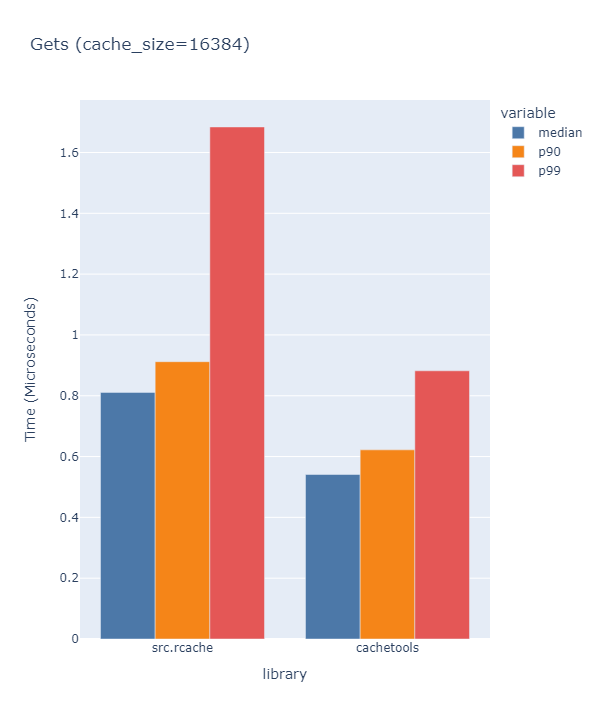
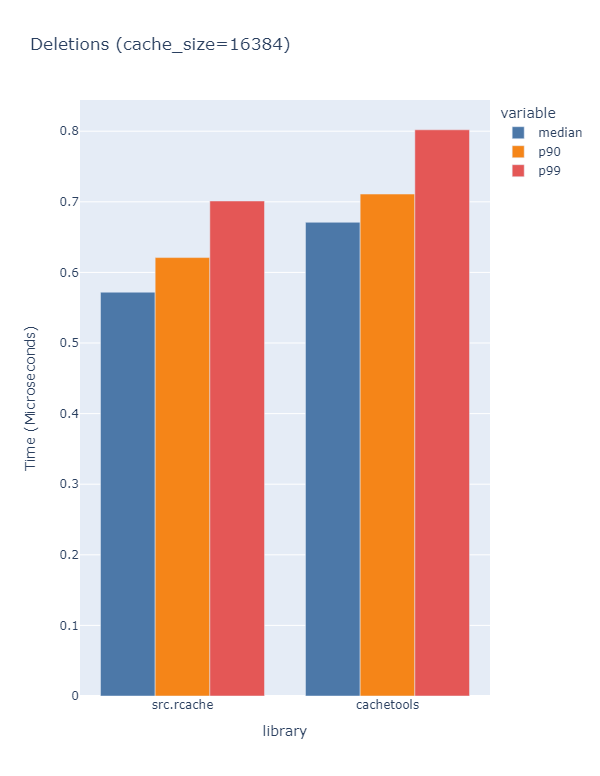
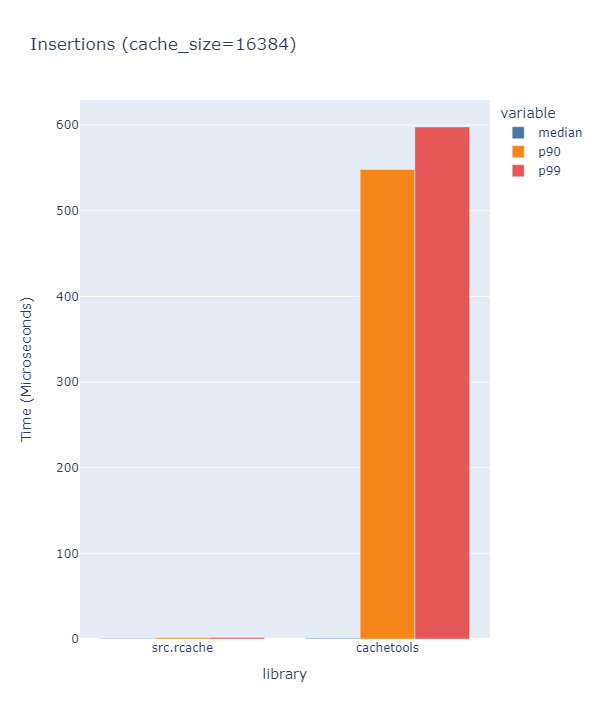
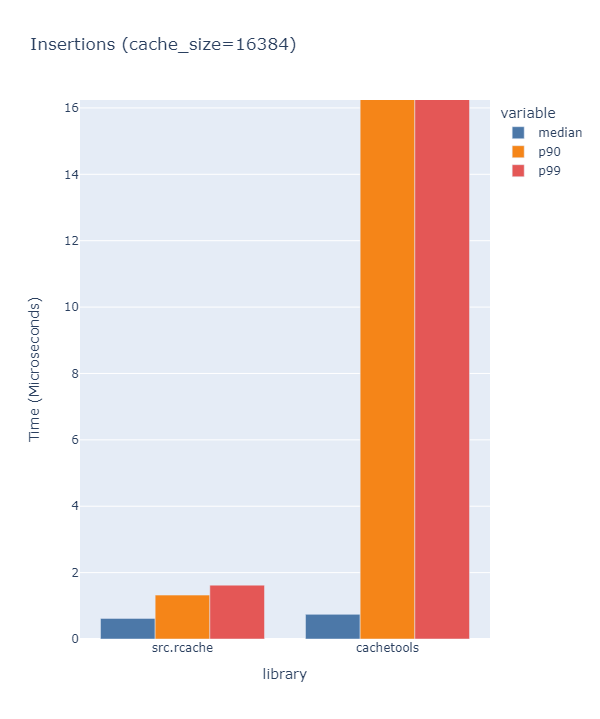
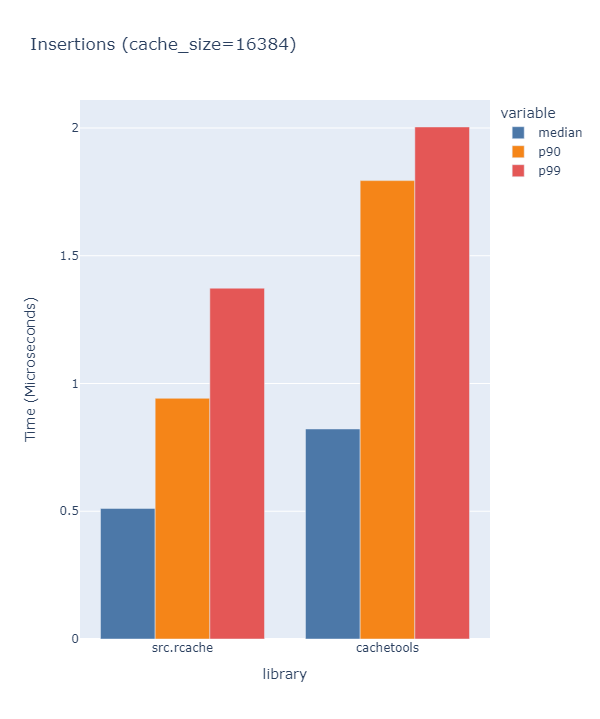
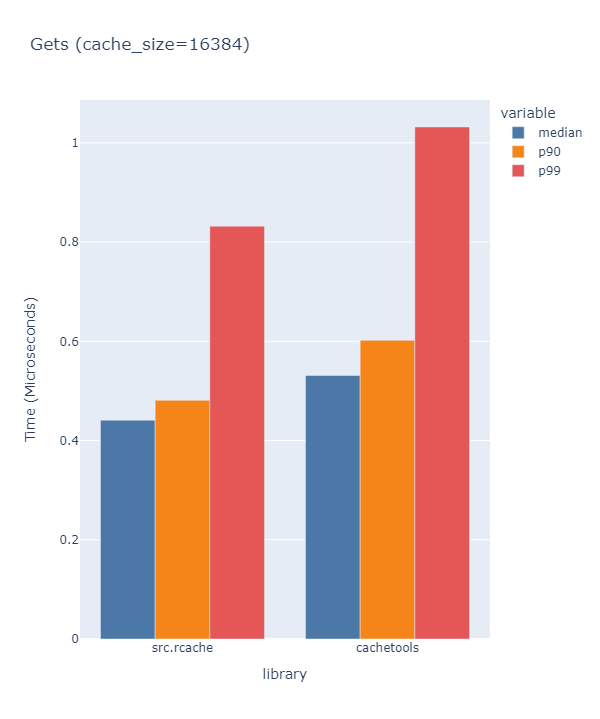
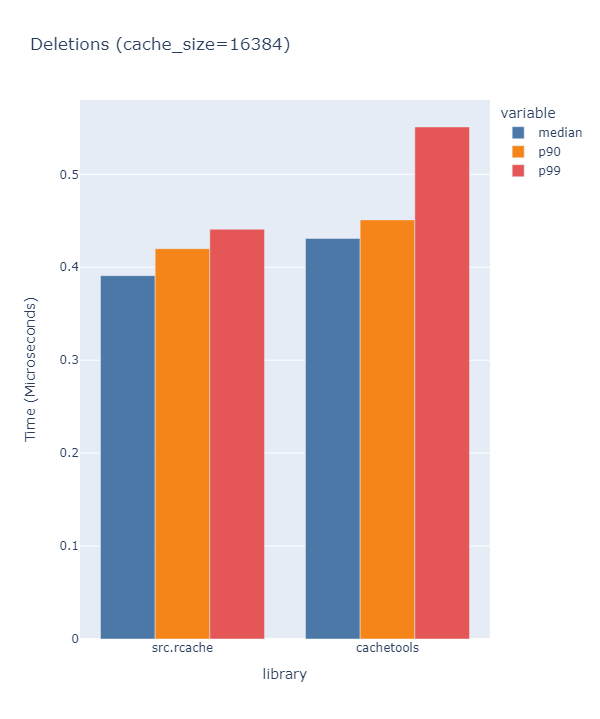
FAQs
a performant python cacheing library
We found that cacheing demonstrated a healthy version release cadence and project activity because the last version was released less than a year ago. It has 1 open source maintainer collaborating on the project.
Did you know?

Socket for GitHub automatically highlights issues in each pull request and monitors the health of all your open source dependencies. Discover the contents of your packages and block harmful activity before you install or update your dependencies.

Security News
Fluent Assertions is facing backlash after dropping the Apache license for a commercial model, leaving users blindsided and questioning contributor rights.

Research
Security News
Socket researchers uncover the risks of a malicious Python package targeting Discord developers.

Security News
The UK is proposing a bold ban on ransomware payments by public entities to disrupt cybercrime, protect critical services, and lead global cybersecurity efforts.